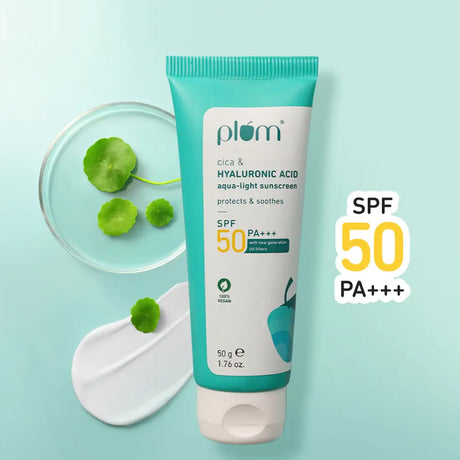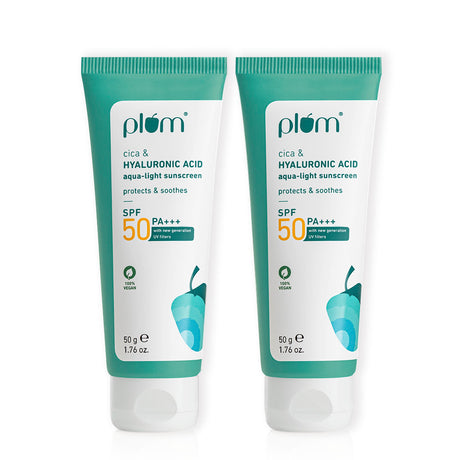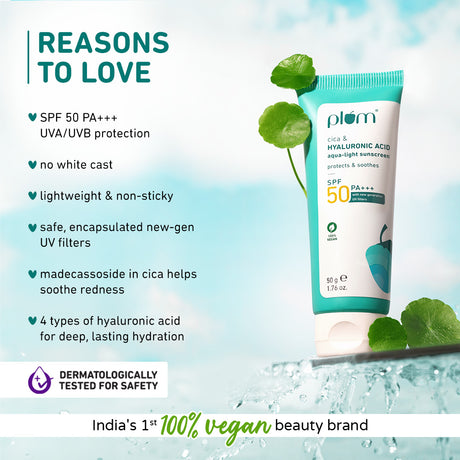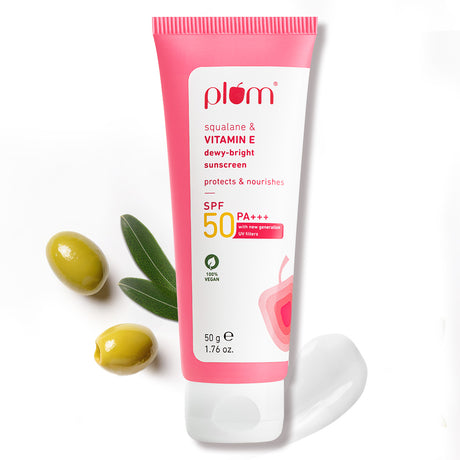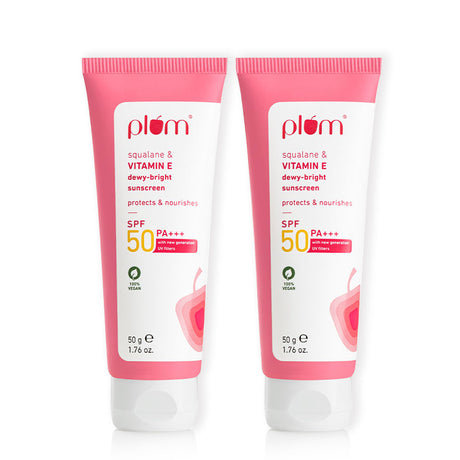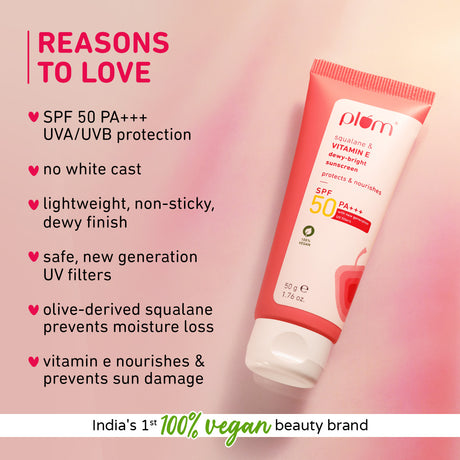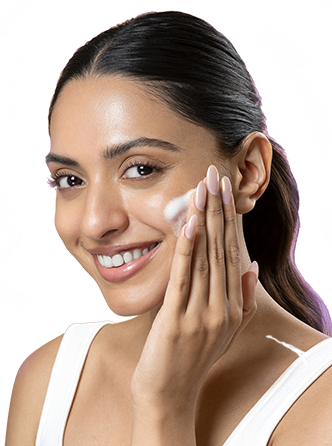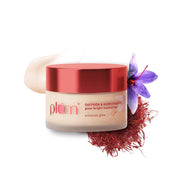
IN THIS ARTICLE
For those with oily skin, finding the right skincare routine can be overwhelming. Nothing seems to suit their skin and many misconceptions about keeping the skin oil-free (cleanse your face thrice a day, skip moisturizer, etc.,) further make it difficult to find the right skincare products.
For instance, finding sunscreen for oily skin can be a tough battle. After all, sunscreens have always been infamous for being greasy and, sticky, and accused of causing clogged pores, blackheads, and acne.
Well, not anymore. Today, there is a plethora of sunscreens that are suitable for oily skin. They not only adequately protect your skin against sun damage but also are lightweight and comfortable to wear.
So if oily and acne-prone skin has been your pain point throughout, let us help you. Here is a simple guide on how to choose sunscreens and recommendations for the best sunscreens for oily skin.
But first, let's understand what oily skin is and what makes it so difficult to handle.
What is oily and acne-prone skin? How do you identify if you have oily skin?
Before talking about the best SPF for oily skin, let’s first understand what oily, acne-prone skin is. The type of skin that is characterized by excessive sebum production is called oily skin.
In addition to being greasy all the time, if your skin is also prone to regular acne breakouts, it can be categorized under oily acne-prone skin. (Often oily skin is more prone to acne due to it being more susceptible to clogged pores, enlarged pores, blackheads, whiteheads, etc.)
Oily skin is a result of overactive sebaceous glands, which produce more sebum than necessary. This excess oil can be linked to various factors such as genetics, hormonal fluctuations, diet, and skincare habits.
Individuals with oily skin often struggle with enlarged pores, acne breakouts, and a persistently shiny complexion, especially in the T-zone (forehead, nose, and chin). However, the right skincare routine and products can help manage oily skin.
To identify if your skin is oily, opt for the tissue method. Wash your face and leave your skin bare without applying any product for an hour. Now dab a tissue on your forehead, nose, and cheeks. If you witness unnatural shine or oil on your skin, you have oily skin.
In the same way, you have acne-prone skin if your skin is more prone to frequent acne breakouts that don’t seem to fade away easily.
Do you need sunscreen for oily skin?
Contrary to what people believe, being ‘blessed’ with oily skin does not protect your skin against sun damage. You are equally prone to sunburn and premature aging, like all other skin types. Therefore, instead of skipping sunscreens, choose a sunscreen that suits your skin and does not clog your pores further.
How to choose a good sunscreen for oily skin?
Sunscreens have always been perceived as greasy and sticky. However, newer formulations are lightweight and quick-absorbing, give a dewy finish, and leave no white cast, leaving you with what you are seeking: a good sunscreen for oily skin.
To help you choose the best sunscreen for oily skin, here are some factors you need to consider.
A non-comedogenic formula
Comedogenic means a tendency to clog your pores and cause blackheads. Therefore, while looking for the best sunscreen for oily skin, opt for non-comedogenic formulas to avoid clogged pores and acne breakouts.
Non-comedogenic sunscreens are typically recommended for oily and acne-prone skin as they are lighter in consistency, blend in easily, and are less likely to cause excess oiliness.
Oil-free formulation
Opt for oil-free sunscreens that are lightweight and absorb quickly into the skin without leaving a greasy residue. Oil-free formulations are more suited for oily skin as they provide sun protection without adding extra shine. Moreover, they tend to be less heavy on your skin, without any white cast, and leave a dewy finish.
Matte finish
If you have oily skin, you might always have a blanket of unwanted shine, almost the entire day. Therefore, while looking for the best SPF for oily skin, opt for a matte finish formula. Sunscreens with a matte finish help control excess oil and shine throughout the day, without feeling heavy on your skin, providing a more balanced complexion for your skin.
Broad spectrum protection
UV rays have two forms- UVB and UVA. For protection against both, look for broad spectrum sunscreen for your skin. Also, ensure that it has an SPF of 35 and above, along with PA +++.
Skin-loving ingredients
While looking for the best SPF for oily skin, study their ingredients carefully to ensure they are suitable for oily and acne-prone skin. You can opt for sunscreens with ingredients like niacinamide, green tea, cica, hyaluronic acid, etc. These ingredients help soothe the inflammation in your skin and control sebum production.
New-gen filters
To avoid irritation in your skin, look for sunscreens with new-gen filters. New-gen filters are the latest and safest known filters, yet, are less likely to cause skin irritation. They keep the sunscreen stable for long and give lasting sun protection.
How to apply sun cream for oily skin
Now that you've found your dream sunscreen, it's time to ensure that you apply it in the right manner.
Start with clean skin
Begin by cleansing your face with a gentle cleanser to remove any dirt, oil, or impurities.
Apply a lightweight moisturizer
Moisturize, moisturize, moisturize. Even oily skin needs hydration, so apply a lightweight, non-comedogenic, oil-free moisturizer to keep the skin balanced before applying sunscreen.
Use the right amount
Apply that sunscreen like it's your holy grail. Dispense at least two-finger-length worth of sunscreen t to cover your face and neck adequately.
Apply a thin layer on your skin and massage it upward until it's completely absorbed into the skin. Make sure to apply your sunscreen 15 minutes before you head out.
Reapply throughout the day
To maintain adequate sun protection, reapply sunscreen every three hours, especially if you're spending time outdoors, swimming, or engaging in activities that cause sweating.
Plum’s suggestions for the best sunscreens for oily skin
If you are still on the lookout for the best sun creams for oily skin, here are the top 3 sunscreens enriched with all the skin-loving ingredients.
Managing oily skin can be a nightmare if you do not use the right skincare products. However, your skin deserves all the love and protection from the harsh sun rays. So don't skip sunscreen, instead, choose a suitable SPF for your skin and say goodbye to sun damage.
FAQs
Is it good to apply sunscreen for oily skin?
Yes, it is a must to apply sunscreen for oily skin. Exposure to sun rays can damage your skin causing sunburn, hyperpigmentation, premature aging, and even skin cancer. Therefore, whatever your skin type, you must apply sunscreen every day.
What to avoid in sunscreen for oily skin?
While looking for sunscreen for oily skin, ensure that it suits your skin and is non-comedogenic and lightweight. Avoid greasy formulations that can likely feel heavy on your face or cause irritation.
How to choose a sunscreen?
There are a few factors that you need to consider while choosing sunscreens -
- It should be lightweight and non-oily.
- It should have all the necessary filters.
- It should leave no white cast.
- It should have broad spectrum protection with at least SPF 35 & above and PA +++ rating.



